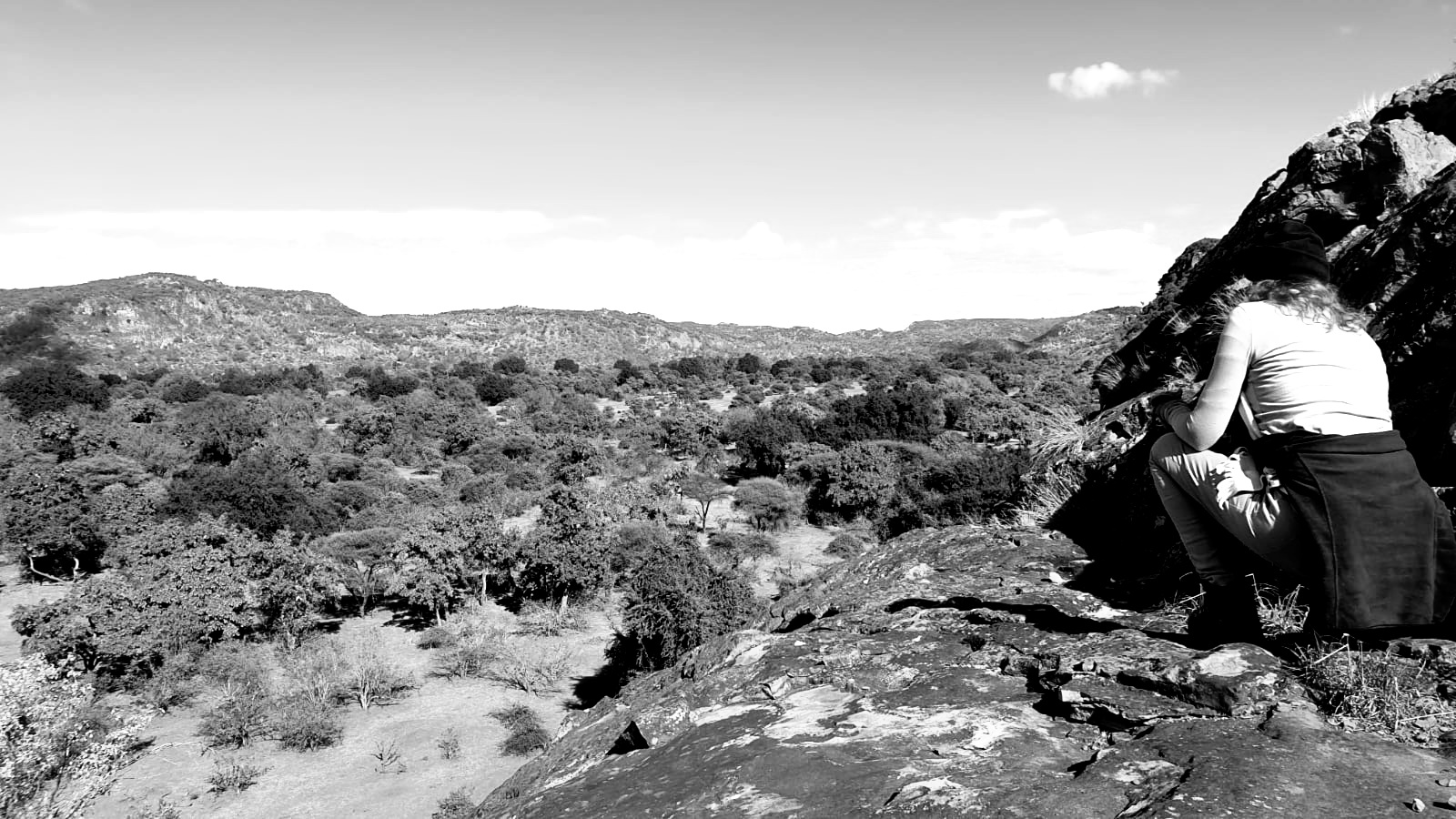Guardians of Makuleke
“Always be on the lookout for the presence of wonder.” E.B. White
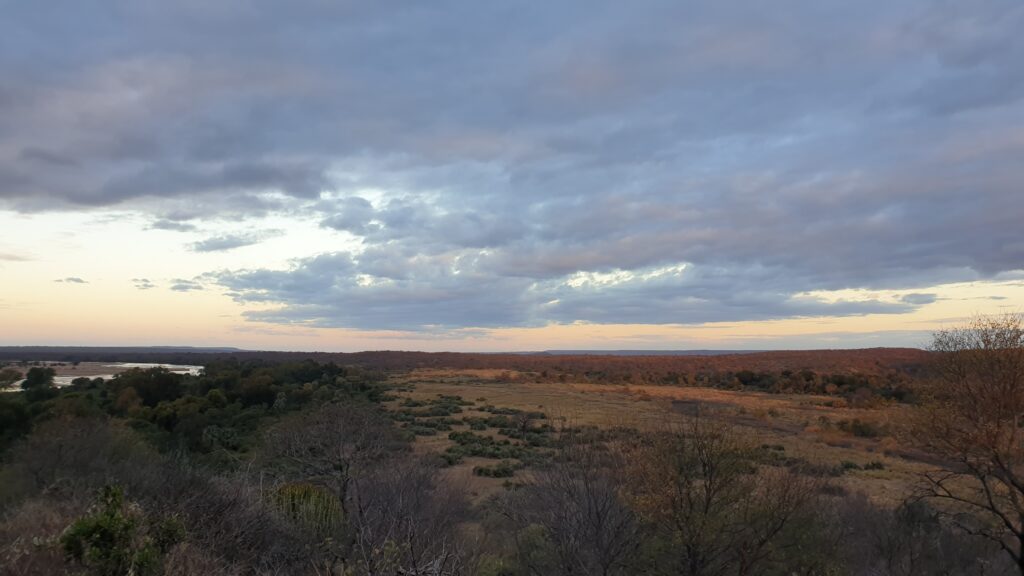
Reflection of Makuleke
I joined a small group of nature enthusiasts for two weeks in a remote location called Makuleke in South Africa. I took part of a fun educational program designed to teach those more about wildlife and the area itself; and to simply enjoy nature. My goal was to support a vision that aimed in respecting animals and the natural environment these animals need to live in.
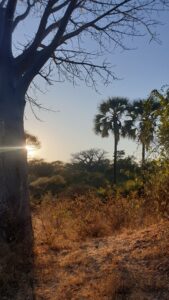
My activities included learning how to track animals, the fundamentals of birding, obtaining a deeper understanding of conservation and recognising animal behaviour by observing and identifying the body language.
I found myself climbing to soaring heights at the top of sky-scraping gorges, from where I could see Zimbabwe and Mozambique in the horizon; wading in the knee-high winding Luvuvhu River while the crocodiles and hippos dose on nearby banks; encountering animals and birds during early morning walks; hiking and exploring through enchanting and lush bushveld forests, that were alive with birdsong; and then standing at Crook’s Corner – a meeting point for not only the Limpopo and Luvuvhu River, but also for the three neighbouring countries: South Africa, Zimbabwe and Mozambique.
In this 24, 000 hectare space there was only crowds of thick vegetation and trees. There are so many different species of trees – Mopane, Palm, Fever, Mahogany, Fig and the majestic Baobab… the list can go on. Being surrounded by such an environment, the mind gladly drifts away from the hustle and bustle of city life.
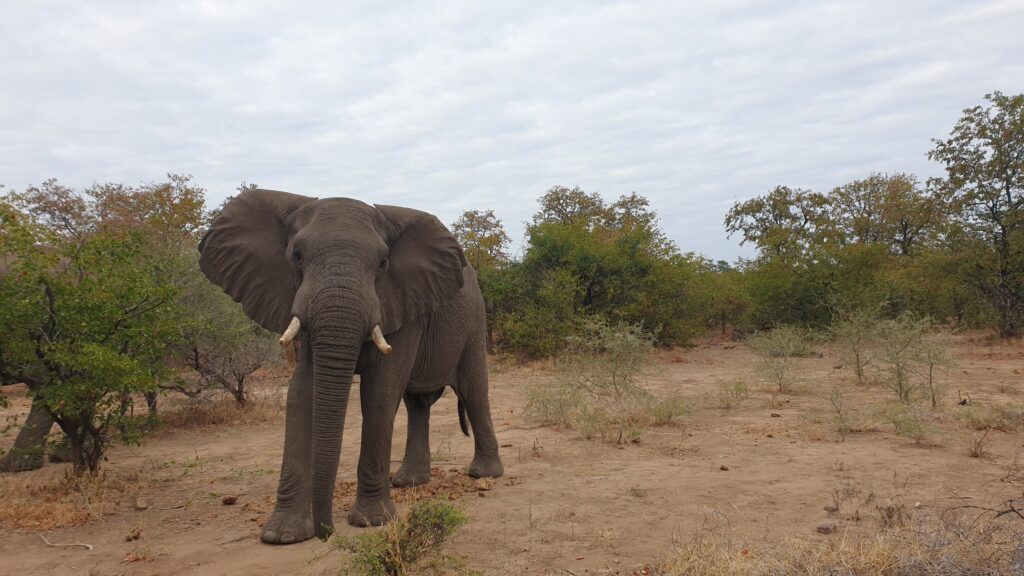
My mind found peace while relaxing in the calm, slow-moving afternoon. I would idly watch the ever-entertaining squirrels or unexpectedly spot a monitor lizard passing by under the warm African sun.
The setting sun leaves the dusky sky, painting it in unique colours at each passing minute.
The sound of the wilderness is unpolluted. The silence is filled with music made by the birds and the soft breeze through the leaves of trees. During a star-studded night, I listen to those who are nocturnal – Bushbaby calls, jackal howls, eerie sounds from hyena, and somebody mysteriously crunching branches nearby…
There is joy and reflection to be found amidst the simplicity of natural surroundings. For me, it is all balancing for the soul.
The two weeks left me with gratitude for embarking on such a special adventure. I had the privilege to connect with life. So inspiring to continue to do what I love… to explore.
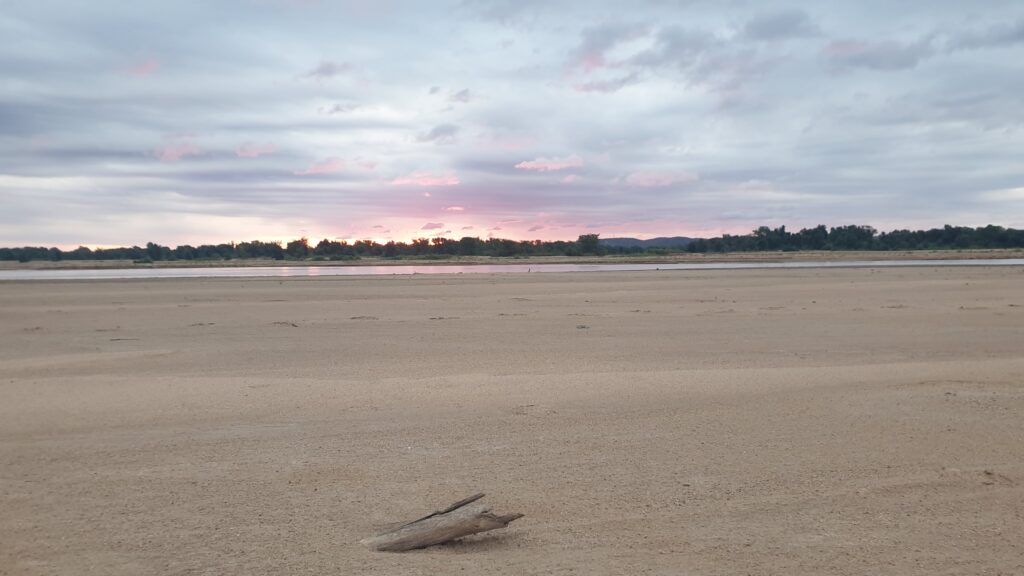
Where is Makuleke?
Makuleke is located in the most northern region of the Kruger National Park, South Africa.
What’s Special about Makuleke?
- Makuleke is a private concession area of Kruger National Park.
- Makuleke has a Tsonga/Pafuri tribe heritage dating back to the 1820’s.
- Crook’s Corner was and still is a popular escape route for criminals and poachers. The access between the countries is rather easy here… if one is willing to encounter crocodiles, hippos and other wild animals.
- The area has a diverse natural beauty and landscape; rich with rivers, forests and gorges.
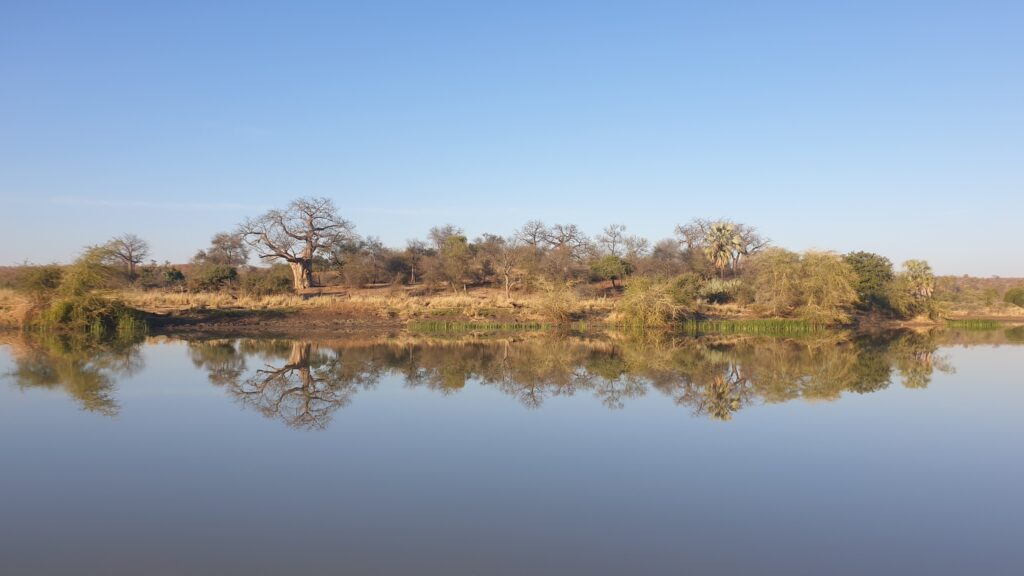
The Guardians of Makuleke
- Poaching is an on-going problem in Makuleke. This is due to the closeness and easy access points at the borders.
- Anti-poaching teams are actively fighting the poaching battle and they can be seen daily patrolling the area..
Conclusion of the Learning Experience at Makuleke
- The rehabilitation and restoration projects, i.e., conservation, aim to reflect respecting nature and showcase how vulnerable it all is if left unprotected.
- The work in protecting wildlife and conserving a safe environment for the animals needs everyone’s support.
- Support those who understand how to restore a natural ecosystem that is healthy and balanced enough to thrive without interference.
- The respect towards the environment and the animals at Makuleke were visible. Animals were only approached and viewed at a comfortable distance for the animal.
- Respectful practices such as these allow for a growth of strong and healthy relationships with the natural environment.
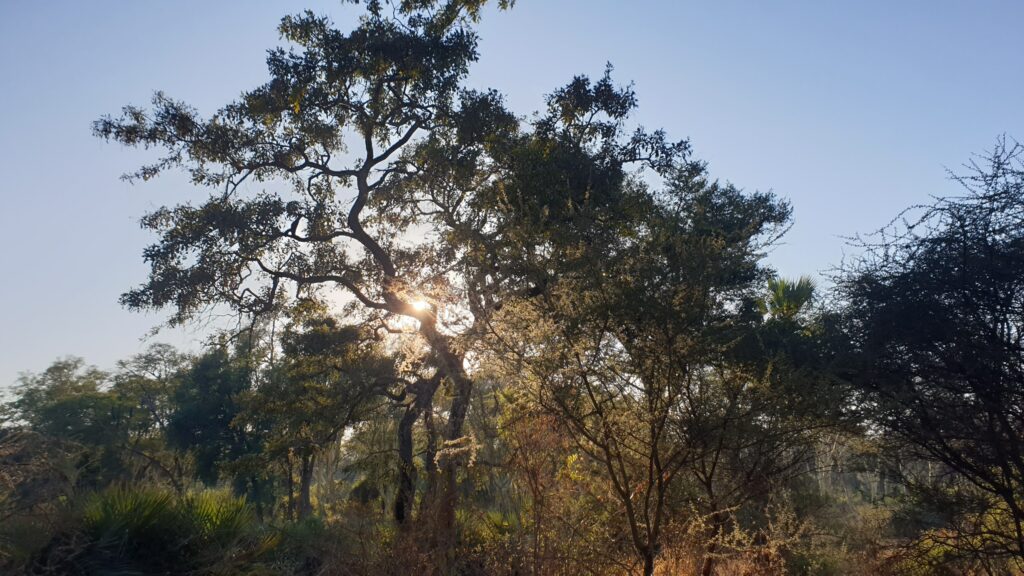
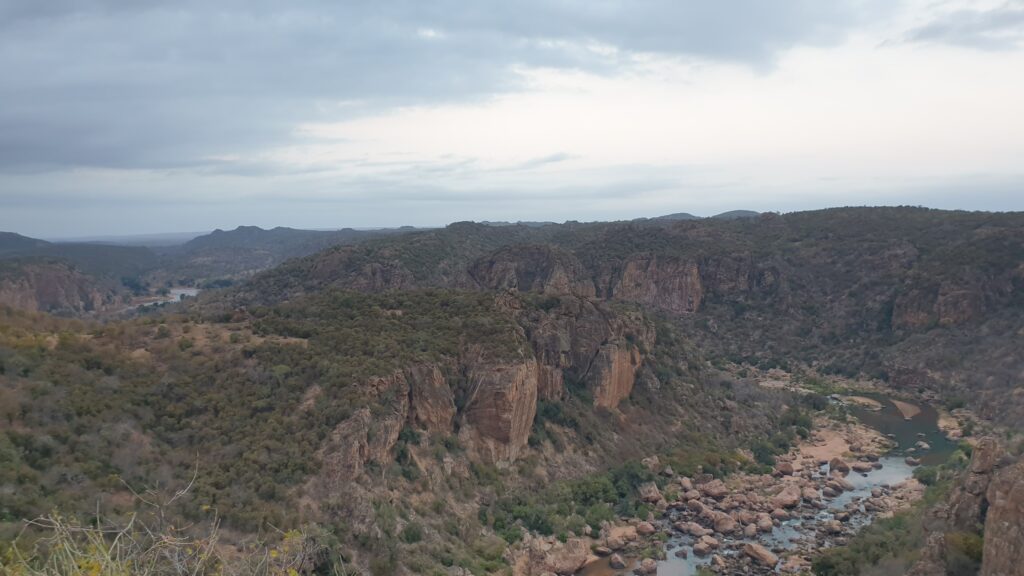
- There’s never-ending work in saving the lives of animals. During activities, there’s always scouting for and removing poachers’ snares.
- Well-thought-out camps have been integrated within the bushveld, so that problems with animals in their own habitat can be avoided as much as possible.
- Educational programs build faith and understanding in conservation work. A true Guardians of Makuleke network is being built.
- Support conservation and the programs that have the intention to protect what’s left of our natural world.
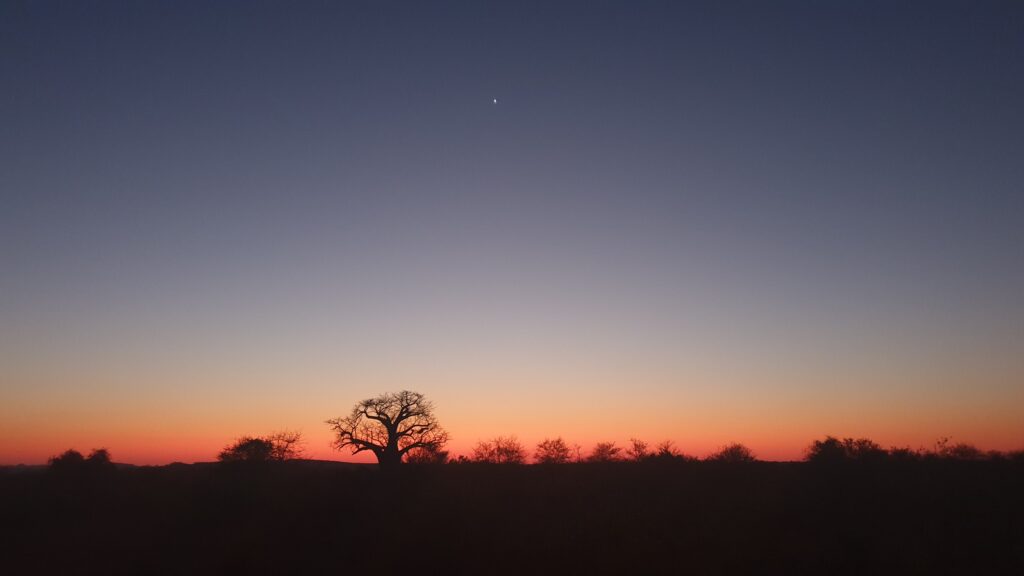
Fun Fact:
A tortoise has what’s called a bursa sac. This sac reserves water to prevent the tortoise from dehydrating. The tortoise reflexively loses this water when picked up (so, it’s not pee!). Unless there’s a water source nearby or the tortoise can be taken to one, to avoid costing the poor tortoise its life, they should never be picked up (except if they’re really in a tough spot and need assistance!).
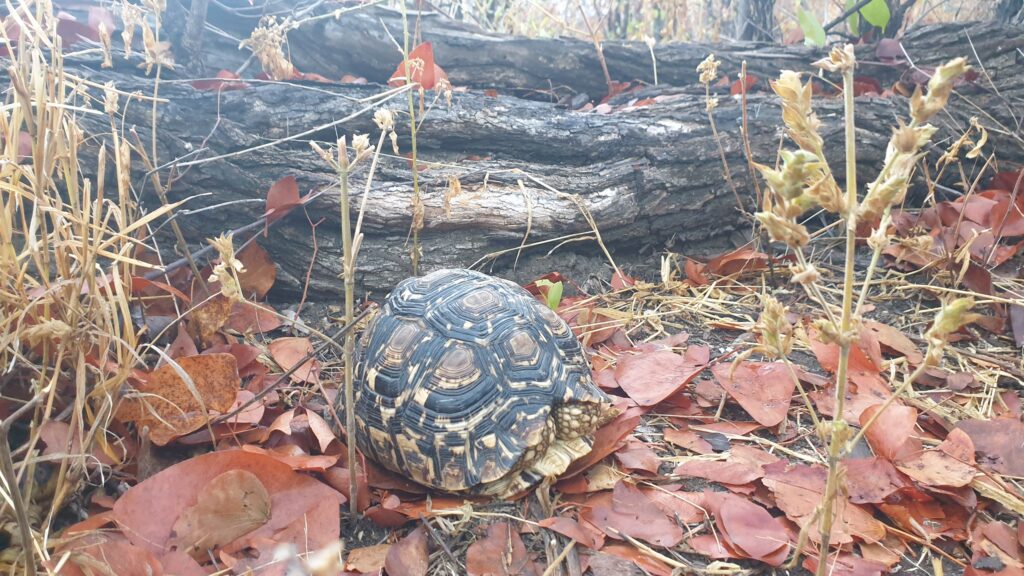
Relevant Pages to visit within the Free Spirit ~ Evergreen Soul:
A link for the bird enthusiasts:
Link to a list of animals seen in Makuleke:
If you would like to read what I got up to in Ireland, here’s the link:
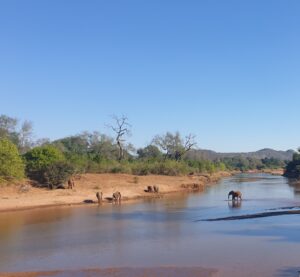
Thank you for reading about my wildlife retreat. It really felt like a retreat! I hope my memories and experiences brought you as much inspiration and interest as it was to write.
“Live to Love ~ Love to Live“
Earth’s Wildflower,

